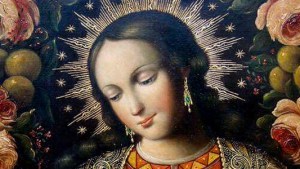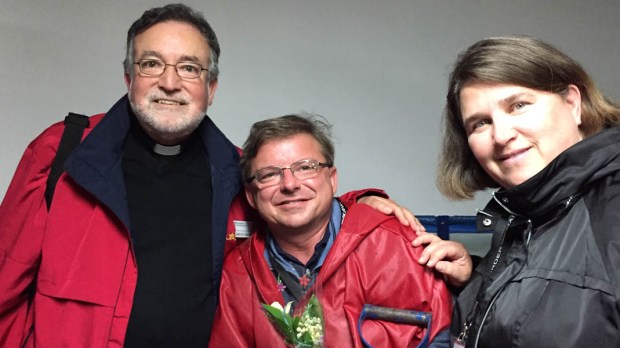Shortly after I came to Modesto, California, in 2004, my pastor, Fr. Joseph, introduced me to Roberto and Ana. Both were devout Catholics. Ana was a fellow physician, while Roberto eventually graduated from nursing school and became a nursing instructor. They had two children, Maria and Franco.
Over the next decade, our families spent countless hours together at social events. These nights would usually end in an intensely passionate board game, where Roberto, the master strategist, always excelled. The game would often end in the wee hours of the morning with both the winners and the losers exhausted.
Roberto was born in San Jose, Costa Rica, where his father is a cardiologist. He came to the United States to go to college, where he met Ana.
Roberto was known for his wit, humor, and compassion. Even though English was not his native language, he was an avid reader of anything from Shakespeare to the biographies of former presidents.
When Roberto was in college, he developed a peptic ulcer. The ulcer was caused by a Heliobacter pylori infection. The infection was treated and his ulcer resolved. However, treatment does not ensure that future complications will not arise.
H. pylori is a bacterium that lives in the digestive tract in the high acidic environment of the stomach. It was discovered in 1982 and is now known to be associated with stomach ulcers.
H. pylori infection is present in about 50 percent of the world’s population. It causes an increased risk of gastric carcinoma, which is the second leading cause of cancer deaths worldwide. Five-year survival, for those diagnosed with gastric cancer, is a dismal 15 percent.
In the fall of 2014, our worst fears materialized. Roberto began experiencing stomach pain and bloating and after testing was diagnosed with gastric cancer.
At this time his children, Maria and Franco, were 14 and 12. Roberto was very busy studying for his Masters in Nursing and working as a nurse at the local hospital. In the hope of reversing, halting, or least slowing the progression of the disease, Roberto started chemotherapy.
During this difficult time, I was completing my final provisional year to become a member of the Order of Malta.
The Order of Malta was founded in 1113 by Blessed Gerard. On February 15, 1113, Pope Paschal, by papal bull, approved the foundation of a hospital in Jerusalem and the formation of the new Lay Religious Order. Originally, the Order was tasked with the military defense of pilgrims, especially the sick, who were traveling to the Holy Land, as well as the defense of the Faith.
Today the Order is composed of more than 13,000 Knights and Dames who are scattered throughout the world in various national associations. While no longer active militarily, the Order is still dedicated to the care of the poor, sick and disabled, as well as the defense of the faith.
Every year, in the first week of May, the Order’s associations gather in Lourdes for an annual pilgrimage. The Order brings people who are sick and disabled, known as malades, from all parts of the world to experience the healing power of Lourdes. Each association has its own medical team responsible for the malades during their time in Lourdes. Since becoming a member I have been honored to be involved in their care as a medical team member.
In the fall of 2014, I nominated Roberto as a malade for the May 2015 Lourdes Pilgrimage. Once nominated, there is a review by both the medical team and a formal selection committee. Only about one out of three nominated malades are chosen to go to Lourdes.
I have discovered that the mystery of Lourdes begins with the selection process. While the medical team and the selection committee make tough choices, it is really Our Lady who is in charge. It is She who personally selects, invites, and welcomes each malade, using the help of her Militia, the Knights and Dames of the Order of Malta.

Read more:
What I’ve learned from a begrudging consecration to Mary
Lourdes is a place where heaven meets earth. Even in the midst of the suffering and pain of the malades, who come from all parts of the globe, there is a palpable presence of something far greater and transcendent, just behind the veil of our human misery. At Lourdes, Mary leads us to encounter her Son in the Eucharist. It is this profound encounter with the Eucharistic Lord that is life changing, transformational, and miraculous.
For Roberto, the pilgrimage was just this. In the first couple of months following the pilgrimage, his cancer appeared to regress. However, by August, the disease was back, in full unrelenting force. The physical effects on Roberto were devastating. Yet, when you asked him how he was doing, his response was “never better.” A couple of months before he passed, Roberto came over to my house for dinner. I hugged him per our usual greeting and asked how he was doing. His protruding belly, cancer ridden, bumped in to me. It was hard as rock, his organs inflamed with the invading cancer. I remember thinking I had never seen him look worse, and that he must have been in a great deal of pain. Yet, he responded, as always, “never better.”
The miracle of Lourdes, for Roberto, was the gift of his ability to see beyond the veil of our human misery and suffering. In Lourdes, he had experienced the loving protection of his Heavenly Mother and the warm embrace of the Risen Lord, his best friend. This unconditional love allowed him to visualize a greater goal, a transcendent reality — that he truly was “never better,” despite rapid physical deterioration. In doing so, he inspired a parish community, teaching each of us how to live more fully — and more importantly, how to die with grace and dignity.
Roberto passed away at home on October 10, 2015, surrounded by his family and friends praying the Rosary. As the group started the 4th Luminous Mystery, the Transfiguration of Our Lord, he drew his last breath. For Roberto, the veil was torn wide open. A few days later, I had the honor of giving a short eulogy and being a pallbearer at his funeral. As we laid Roberto in his final resting place, his earthly journey ended, I could not help but hear Our Lady ask Roberto, “How are you doing?” and Roberto responding: “Never better.”
~
This article was written with the approval of Roberto’s loving wife, Ana

